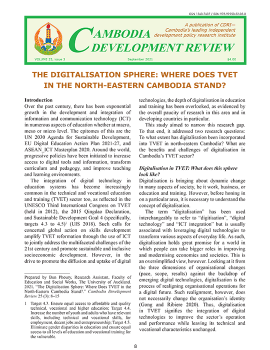Centre for Educational Research and Innovation
CERI is dedicated to conducting high-quality research with a primary focus on education and training in Cambodia and the region to generate knowledge from qualitative and quantitative analyses rooted in data and evidence. Utilising the knowledge we generate, the centre actively facilitates policy discussions between both national and international researchers, policymakers, and practitioners through a series of workshops and policy dialogues held at both national and regional levels. In pursuit of our objectives, CERI maintain close collaborations with government agencies, educational and training institutions, civil society organizations (CSOs), and other pertinent stakeholders. This collective effort is to foster innovation and implement effective solutions in education and training. CERI's core activities revolve around research, capacity development, and policy engagement. Currently, our key areas of focus for research encompass educational technology, skills development, the advancement of quality education, and the promotion of inclusive education, spanning from K12 to higher education.
There is no data list!
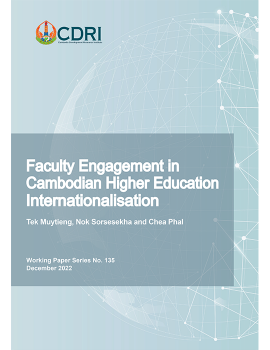
Faculty Engagement in Cambodian Higher Education Internationalisation
This study investigates the engagement of faculty members in the internationalisation of Cambodian higher education institutions (HEIs). Drawing on qualitative data from interviews with 49 faculty members and university administrators across eight HEIs, the research explores faculty attitudes, participation in internationalisation activities, and influencing factors. Findings reveal that faculty m...

Family Background as the Determinant of University Student's Technological Readiness: Evidence from Cambodia
While digital transformation around the globe has significantly gained momentum and speed, embracing technologies in our daily life is now beyond question. In this regard, we need to ask whether or not individuals are ready to accept and use technologies when provided and what really affects one's technology readiness. The main objective of this study is to understand the role of parents and famil...
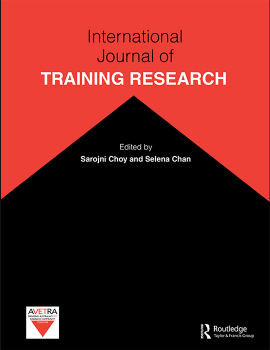
Are Higher Ability Garment Workers More Likely to Participate in Industrial Skills Training in Cambodia?
Understanding what determines a worker’s passion for skills training has important policy implications, particularly in the current context of the fourth industrial revolution, in which knowledge is deemed obsolete within several years. The purpose of this study is to answer a specific question: are higher-ability garment workers more likely to engage in industrial skills training? To do so, we us...
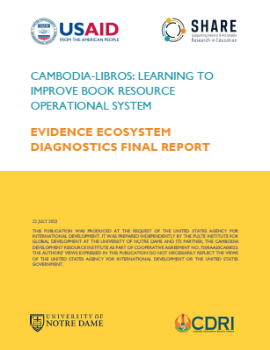
Cambodia-LIBROS: Learning to Improve Book Resource Operation System: Evidence Ecosystem Diagnostics Final Report
This Systems Thinking workshop involved the implementation of eight main activities: issue prioritization, issue mapping systemigram, strategy prioritization, evidence prioritization, stakeholder and idealized evidence network mapping, evidence ecosystem relationship analysis, mapping critical success factors, and research contextualization. A common understanding of what “evidence” for the Ca...
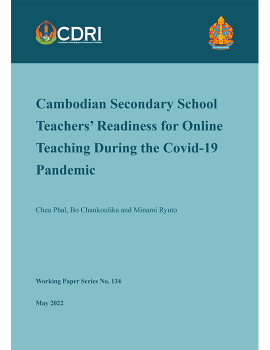
Cambodian Secondary School Teachers’ Readiness for Online Teaching During the Covid-19 Pandemic
This study investigates Cambodian secondary school teachers’ readiness for online teaching during the COVID-19 pandemic and identifies factors influencing their technological preparedness. Drawing on survey data from 687 teachers across 43 schools in 10 provinces, the study applies descriptive statistics and regression analysis using the Technological Pedagogical Content Knowledge (TPACK) framewor...
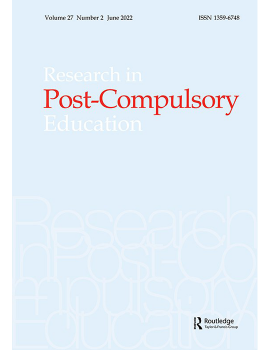
Blurred Identities: The Hybridisation of Post-secondary Education and Training in Cambodia
This study intends to identify existing permeability pathways between post-secondary education and training in Cambodia and to highlight hindrances that hamper the smooth permeability between the two systems. Adopting a hybrid process, the study combines both inductive and deductive thematic analysis approaches in coding transcribed interviews at 15 sampled training institutions and universities....
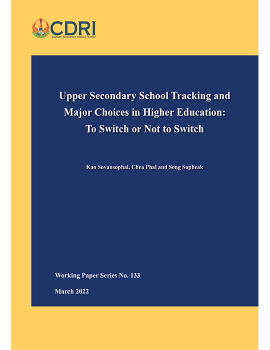
Upper Secondary School Tracking and Major Choices in Higher Education: To Switch or Not to Switch
This study explores the phenomenon of academic major switching among Cambodian students transitioning from upper secondary school to higher education. Despite a high proportion of students enrolling in the science track at secondary level, only a minority pursue STEM majors at university. Using survey data from 1,338 students across 21 higher education institutions, the study investigates switchin...
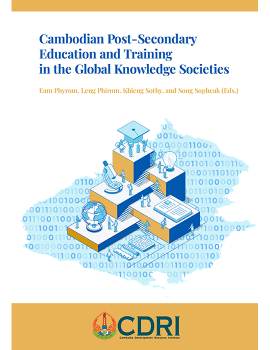
Cambodian Post-Secondary Education and Training in the Global Knowledge Societies
The emergence of global knowledge societies makes it necessary for Cambodian Post-Secondary Education and Training (PSET) system to: accelerate its knowledge-creation function, leading to academic excellence and intellectual prowess; cultivate vocational value, professional quality, and workplace learning habits in its students; build a robust STEM education and pipeline; and enable lifelong...
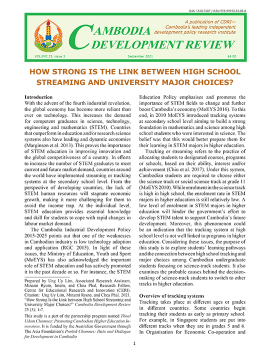
How Strong Is the Link between High School Streaming and University Major Choices?
The purposes of this study are to explore learning pathways when students transit from high school to higher education among Cambodian students and examine the probable causes behind their decision to switch academic majors. The study found that about half of surveyed students switched their academic majors. Virtually all the switchers are science-track female students. Personal interests and labo...

